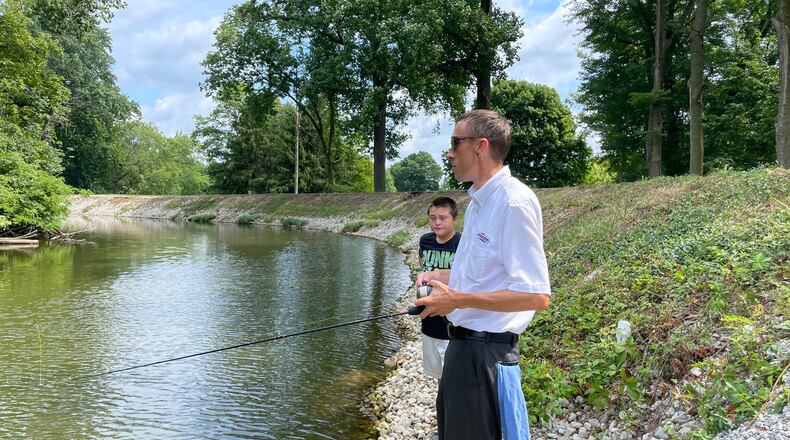“So yes, it’s warmer than last year, but it’s not even warmer than 2020,” said James Gibson, a meteorologist who works at the National Weather Service branch in Wilmington.
The summer of 2020 included five 90-degree days in June and 16 in July. The average temperature for July 2020 was 89.1 degrees, about four degrees higher than this July’s 85.3.
The summer’s peak heat rests at an average of 76 degrees, which lasts from June 29 and goes until Aug. 3 before cooling off. Gibson said that August has a 60 to 70 percent chance to be warmer than normal.
What sets this summer apart is rising humidity, which pushes the heat index higher than the recorded temperatures. Today’s forecast is an example of this, with a high of 93 degrees and a heat index peaking at 102 degrees. Gibson predicted that the National Weather Service may put a heat advisory into effect.
“Yeah, definitely, it’s been more humid than normal. And that’s probably where your ... low temperatures in the morning are significantly warmer, because that’s what keeps the average temperature actually higher,” Gibson said.
Locations across the country have been in the news recently for their heat issues. At least seven people are suspected to have died from hyperthermia since a hot spell began in the Portland, Oregon, area a week ago. Temperatures have neared the triple digits in Portland the entire week, hitting a high of 102 degrees on Tuesday.
The Seattle region was slightly cooler but still topped 90 degrees on Saturday for a fifth straight day, compared to normal temperatures in the high 70s.
About 800 people died in Oregon, Washington, and British Columbia during that heat wave, which hit in late June and early July. The temperature at the time soared to an all-time high of 116 degrees in Portland and smashed heat records in cities and towns across the region. Many of those who died were older and lived alone.
Local residents said they have felt the heat this summer.
“Hotter than normal, more humid than normal and drier than normal,” said Anthony Macke as he fished in Piqua on Tuesday.
About three times a week, Macke uses his lunch break from French Oil to go fishing at Fountain Park in Piqua. The heat has affected how often he heads out to fish — and how successful it is.
“Mainly because of the fishing, so I mean, the water’s been so low everywhere it’s like you can’t do anything,” Macke said.
June was a drier month than normal, with 2.64 inches of rainfall compared to the month’s usual 4.14. July more than made up for it, with 6 inches of precipitation. Gibson said this year as a whole has been significantly wetter, with the area at 29.3 inches of rain so far this year, 3.13 inches more than the usual rainfall for this time.
The Associated Press contributed to this report
About the Author

